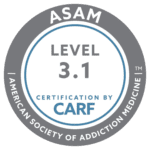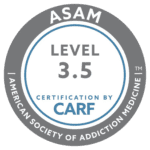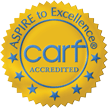Addiction is the compulsive use of drugs and alcohol. It affects the individual’s physical, mental, and emotional health. It also contributes to growing societal problems like crime, poverty, and unemployment. One of the ways to relieve the problems addiction brings is through a 12-step program. But you might ask, “Does a 12-step program work?”
Twelve-step programs are a popular approach to addiction recovery because they are structured and designed to support recovering individuals. These programs highlight personal responsibility, social support, and a sense of spirituality.
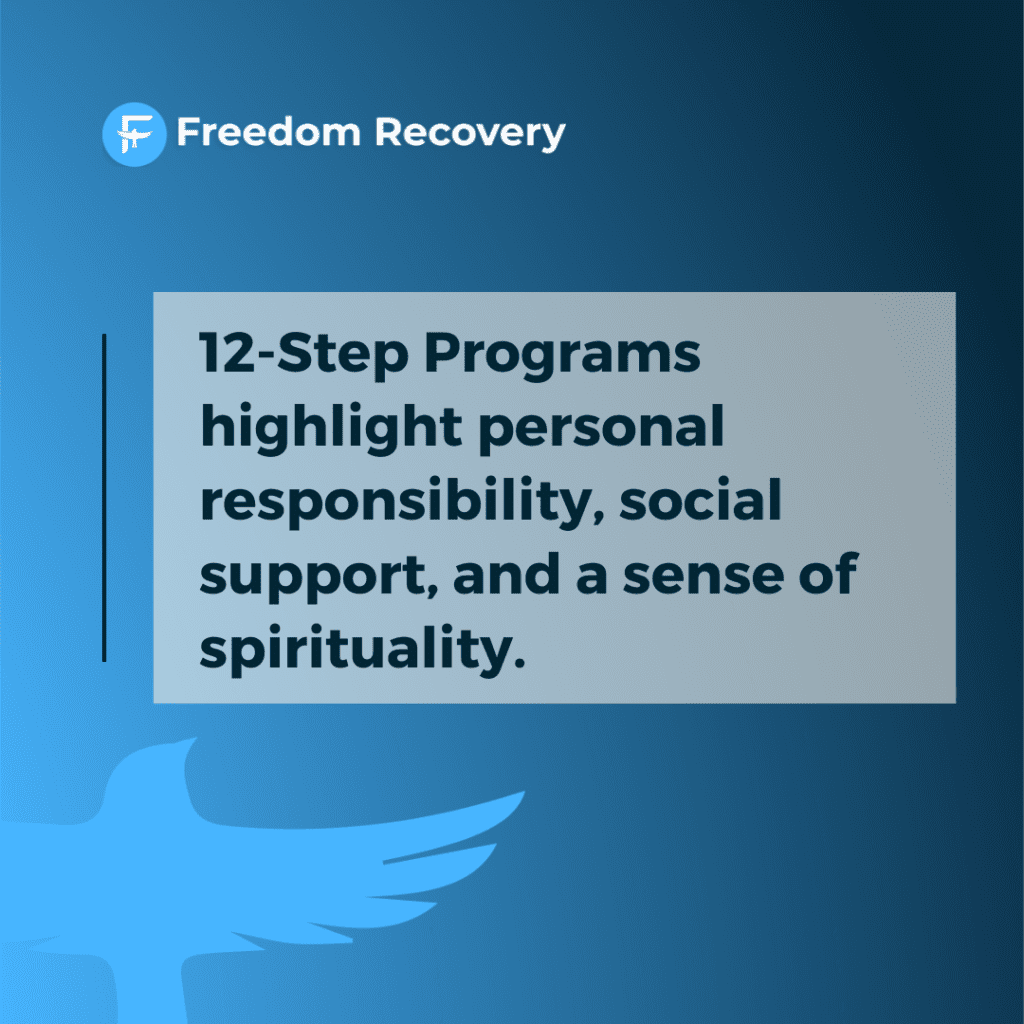
Origins And History Of 12-Step Programs
What is the 12-step program? It is a robust methodology for addiction recovery conceptualized by Bill Wilson, one of the co-founders of Alcoholics Anonymous (AA), in 1938. Wilson incorporated his personal experiences with alcohol addiction, as well as anecdotes from fellow alcoholics, into the development of this process.
Dr. Bob Smith, an Ohio-based surgeon who himself grappled with alcohol addiction, played a crucial role in helping Wilson’s recovery journey. This collaborative effort underlines the profound influence of personal experience and peer support in formulating the 12-step program.
This program was first detailed in the “Big Book,” a seminal text in addiction recovery. The steps incorporate teachings Wilson encountered during his journey, including the six-step program from the Oxford Group and a 12-step process inspired by Christian principles.
This approach promotes a turn towards higher power and shared struggles with peers with addiction. The resulting 12 steps emphasize core values such as honesty, open-mindedness, willingness, humility, and a strong focus on spirituality.
Other programs followed, with their founders modeling theirs after AA. Narcotics Anonymous was founded in the 1950s, and Cocaine Anonymous emerged in 1982. Other recovery programs followed the 12 steps.
Core Components Of 12-Step Programs
Does a 12-step program work? It does, especially considering it offers a personal growth and recovery guide. It helps recovering addicts navigate through self-awareness, self-reflection, and personal accountability.
The steps involve the humility to admit you are powerless over addiction and need help to overcome it. Other steps involve reflecting on past mistakes, moral inventory, and reaching out to people to make amends.
The program ends with the final steps of being sober and establishing a supportive community. The 12 steps program also encourages the practice of gratitude and mindfulness, helping people find meaning in their lives.
Spirituality and belief in a higher power are important in the 12-step program because they give recovering addicts a sense of purpose. These help them connect with a greater power to whom they can trust and hand control over their lives as they overcome their addiction.
Other core components of the addiction recovery program are fellowship, support, and sponsorship. Fellowship helps individuals feel less alone and increase their sense of belongingness within a group of people taking the same journey.
Support is obtained through regular meetings and sharing, during which they can share, listen to, and continue with their recovery. Sponsorship can be seen in how an experienced and sober member guides, supports and holds newer members accountable to keep them committed to their recovery goals.

Key Principles Of 12-Step Programs
Understanding the key principles in the program can help you get more benefits from the 12-step program. These include the following:
Honesty and self-reflection
The program encourages honesty with yourself and others about the challenges and temptations of addiction. It also promotes self-reflection to understand your motivations, behaviors, and patterns, allowing you to overcome addiction and show growth.
Acceptance and surrender
Overcoming addiction entails accepting that you are an addict and surrendering to the idea that you need help to keep it under control. It involves acknowledging the importance of support from other people and a higher power.
Making amends and personal responsibility
You need to be accountable for your wrongdoings, apologize to those you have wronged, and make up for the harm you have caused yourself and others.
Service and giving back
The addiction recovery program will not be complete without you learning about the importance of giving back by supporting other recovering addicts, guiding them, and empathizing with them. You will find purpose and reinforce your recovery by serving others while you are in recovery.
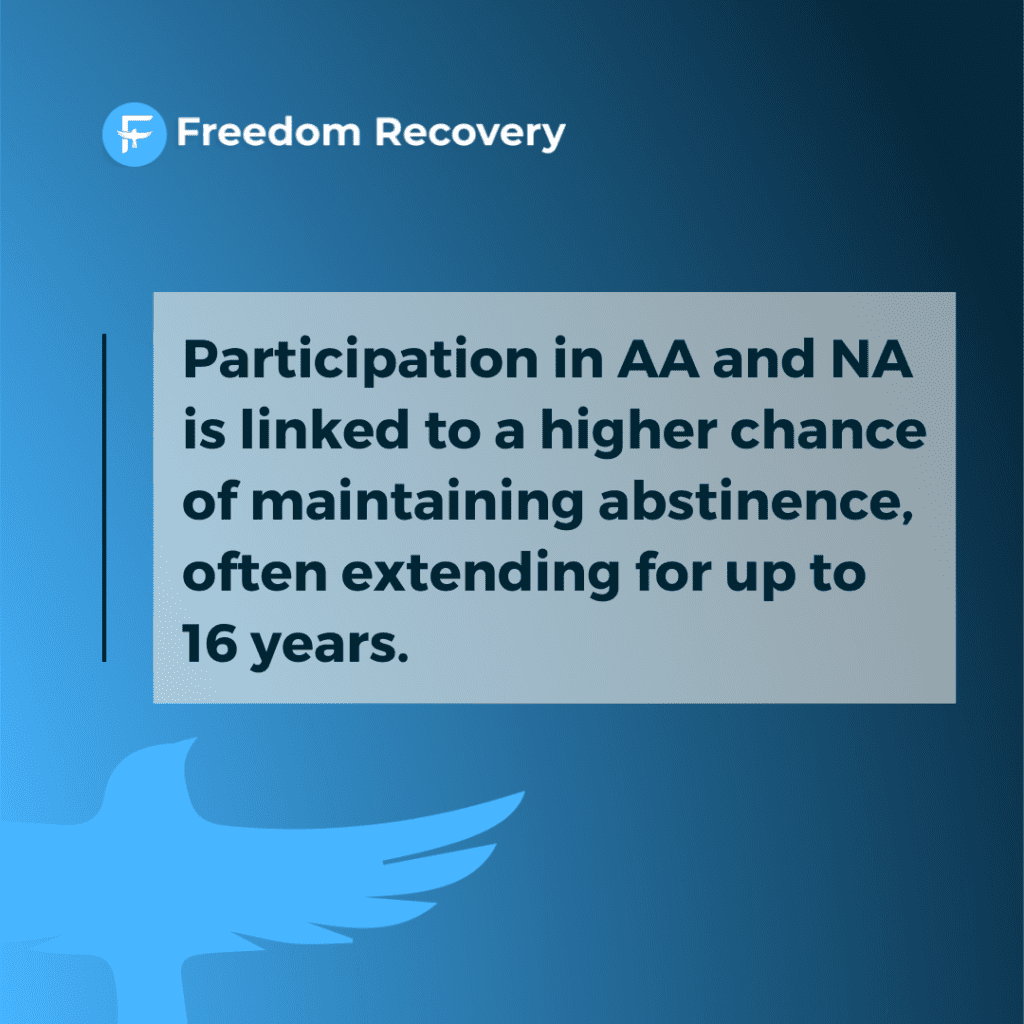
Structure of 12-Step Meetings
The 12-step program for substance abuse recovery meetings can be classified as open or closed. Open meetings allow both members and non-members to attend the program. Meanwhile, closed meetings allow only individuals determined to end their addiction.
AA groups vary in the way they conduct meetings, but here is a general format:
- Opening
- Taking a moment of silence and saying the Serenity Prayer
- Discussing the values of the 12-step program, the importance of confidentiality, and emphasizing openness
- Reading literature, such as the Big Book or 12 Traditions
- Time for everyone to introduce himself or herself by their first name
- Introduction of the meeting facilitator or speaker
- Discussion
- Announcements
- Collection of donations (not required)
- Closing
These meetings usually follow different formats, including the following:
- Beginner formats are led by sober and experienced members, with discussions focused on the first three steps of the 12-step program.
- Discussion formats focus on interactions among the members as they share stories and experiences related to their addiction recovery.
- Speaker formats are led by guest speakers who share their stories and personal experiences about recovery.
- Literature-based formats involve reading and dissecting literature materials like AA’s “Big Book.”
Other 12-step meetings have different central topics, such as those dedicated to behaviors, substances, or specific members’ gender.
Twelve-step meetings must be conducted anonymously to give participants a secure and non-judgmental environment. Participants are only allowed to give their first names without sharing personal details and are expected to keep the members’ stories within the meeting to respect everyone’s privacy.
Effectiveness Of 12-Step Programs
Does a 12-step program work? According to studies, they do. Participation in AA and NA is linked to a higher chance of maintaining abstinence, often extending for up to 16 years. Consistent and frequent meeting attendance may be necessary to reduce the risk of relapse.

After decades since it was founded, the 12-step program has shown proof that it works. It fosters personal growth and recovery, helps participants find a supportive community, and teaches them principles that can be used as tools to stay sober and overcome addiction.
If you want to boost your chances of overcoming addiction, get the support you need from drug rehab in Idaho, like Freedom Recovery. We proudly provide a 12-step program to foster a nurturing environment for your recovery. Contact us today!


